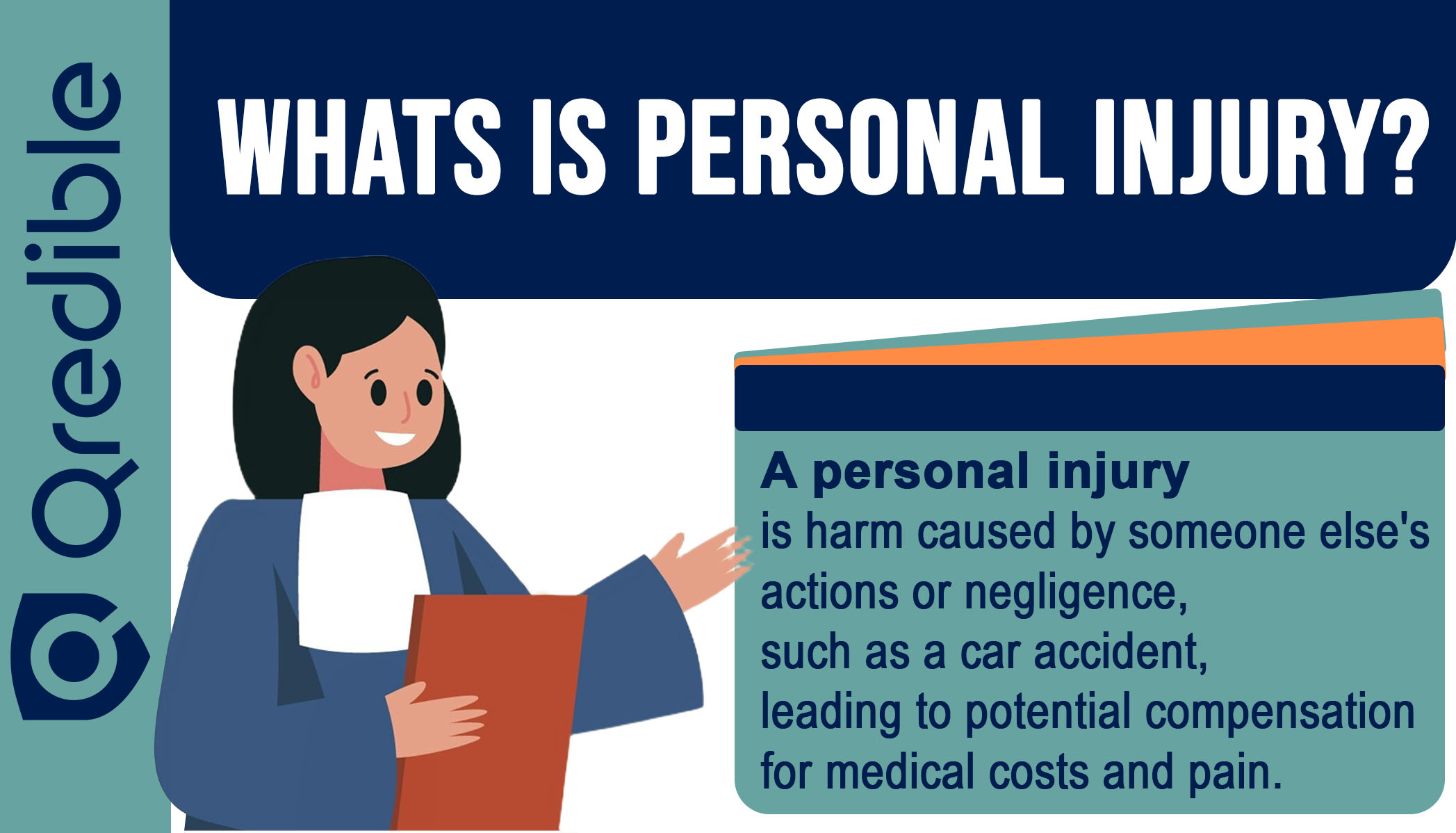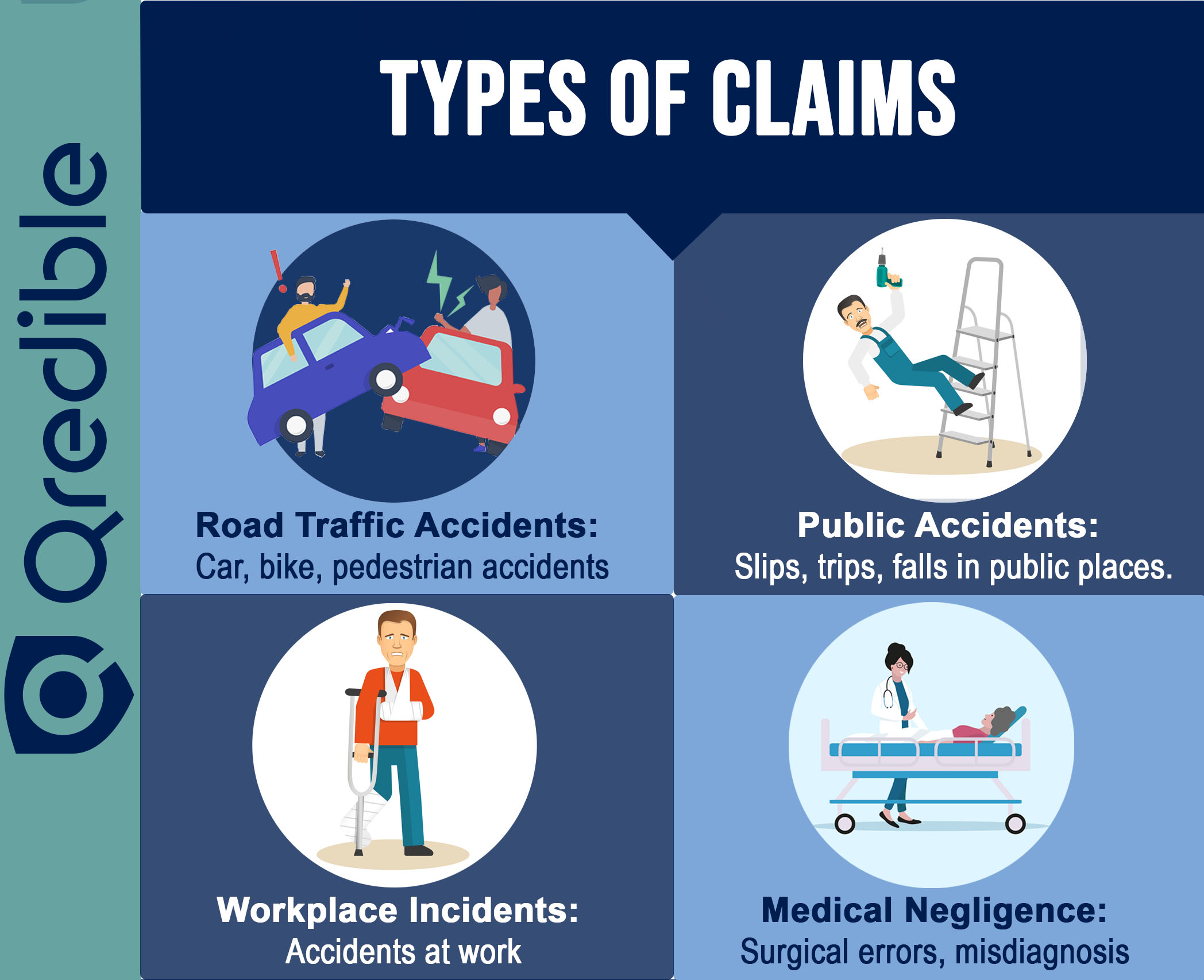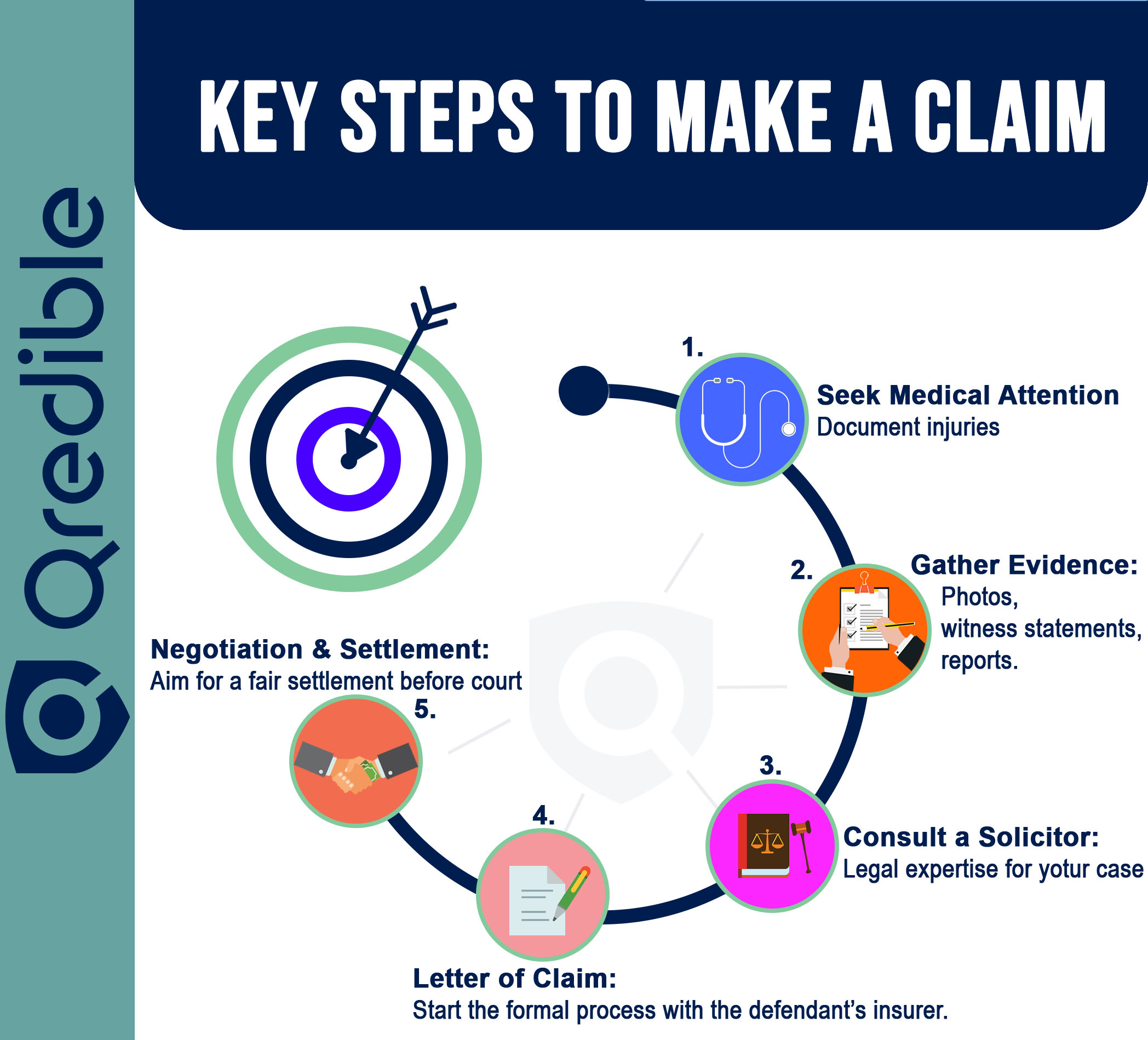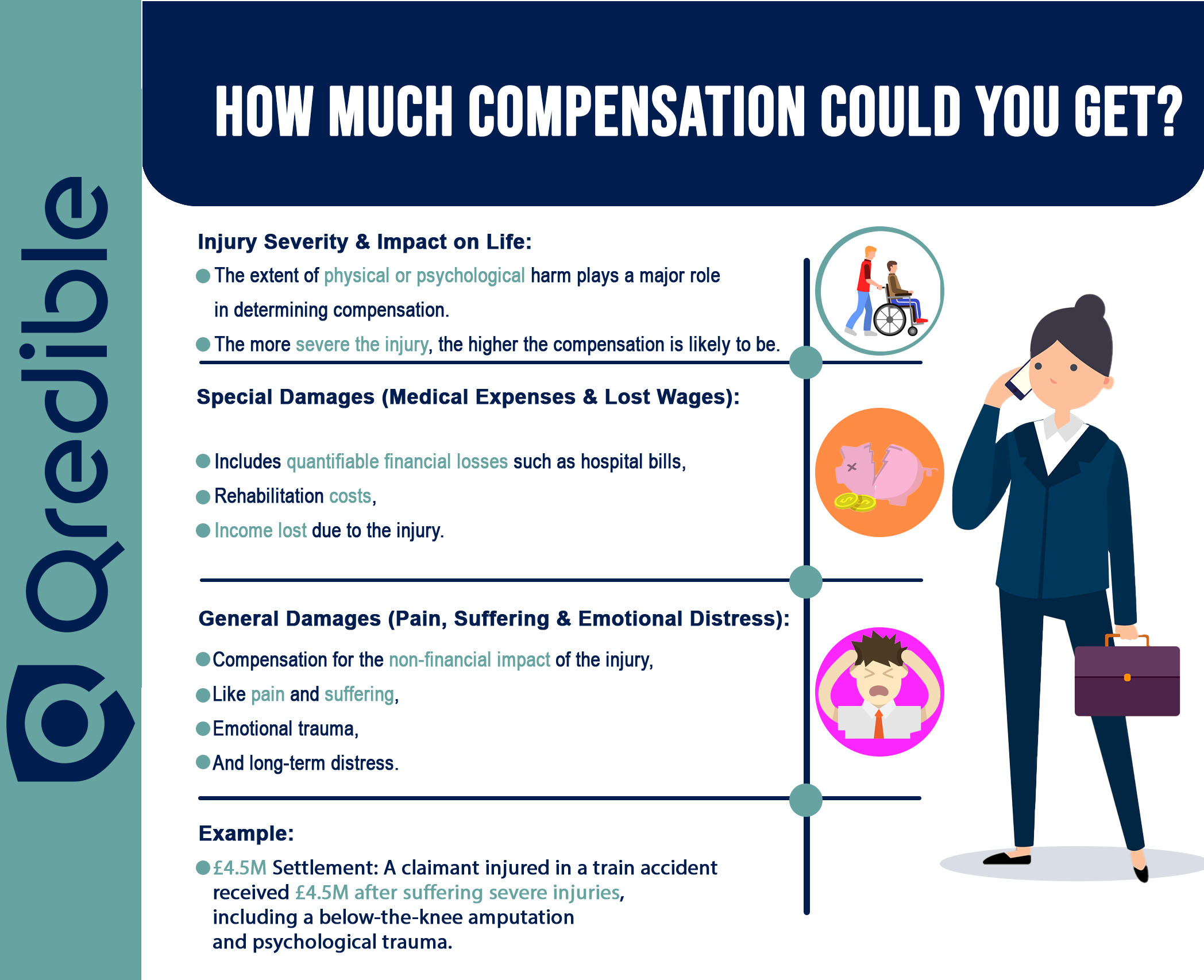What is personal injury?

Suffering harm through no fault of your own? Unlock your rights to justice. In personal injury cases, falling under tort law’s principle of negligence, you have the right to seek compensation when someone else’s careless actions cause you harm. Proving the responsible party failed in their duty of care is essential. An experienced personal injury solicitor provides personalised advice tailored to your situation, strengthening your case for fair compensation. They navigate complex procedures and fight to maximise damages covering economic and non-financial impacts. The path forward can seem daunting, but specialist legal support is invaluable. Continue reading to understand your rights, options, and receive guidance to successfully claim what you’re entitled to.
Below is an infographic that provides a concise overview of the key points everyone should know about personal injury:

Don’t jeopardize your right to compensation. Read on to understand UK personal injury law fully and take action while time allows.
What exactly is a personal injury?
A personal injury refers to the physical or psychological harm that an individual sustains as a result of someone else’s negligence or intentional actions. For example, suppose you are injured in a car accident caused by another driver’s failure to stop at a red light. You may pursue a personal injury claim to seek compensation for your medical expenses, pain and suffering, and other associated damages.
This infographic provides a concise definition of personal injury:

What qualifies as a personal injury claim in the UK?
Seeking compensation for personal injuries in the UK? You may qualify for a claim if your case falls into these categories:
- Road Traffic Accidents: Whether you’re a driver, passenger, cyclist, or pedestrian, injuries from road accidents are eligible for compensation.
- Public Accidents: Slip, trip, or fall in a public place? You may have a claim if the accident occurred due to hazardous conditions.
- Workplace Incidents: From machinery accidents to falls, injuries sustained while on the job can be grounds for compensation.
- Medical Negligence: Surgical errors, misdiagnosis, or birth injuries caused by medical professionals may entitle you to seek compensation.
Here is an infographic that outlines what qualifies as a personal injury claim in the UK:

What are the essential steps to pursue a personal injury compensation claim?
Filing a personal injury claim in the UK involves several key steps. Here is a step-by-step guide to help you navigate the process:
- Seek Medical Attention: Prioritize your health and well-being by seeking medical attention for your injuries, which also provides crucial documentation for your claim.
- Gather Evidence: Collect relevant evidence such as photographs, witness statements, accident reports, and medical records to support your claim.
- Consult with a Solicitor: Engage the services of a personal injury solicitor who specializes in handling such claims to receive expert guidance and handle the legal aspects of your case.
- Letter of Claim: Your solicitor will prepare a detailed letter of claim outlining the accident’s circumstances, injuries sustained, and financial losses, which is sent to the defendant’s insurer to initiate the claims process.
- Negotiation and Settlement: If liability is accepted, your solicitor will negotiate a fair settlement with the defendant’s insurer, taking into account the extent of your injuries, impact on your life, and financial losses.
- Court Proceedings: If a settlement cannot be reached, your solicitor may advise proceeding with a court claim, involving filing necessary court documents and presenting your case before a judge.
Refer to this infographic for a clear outline of the essential steps to pursue a personal injury compensation claim:

Is it worth pursuing a personal injury compensation claim?
Absolutely! Here’s why:
- Covering Losses: Making a claim ensures that the losses you’ve suffered due to someone else’s negligence are appropriately compensated. This includes covering medical expenses, lost income, rehabilitation costs, and other necessary expenses to restore your pre-accident condition.
- Accessible Legal Help: Many personal injury solicitors offer “no win, no fee” arrangements, making expert legal assistance more accessible. With this arrangement, you don’t have to worry about upfront legal costs. The solicitor’s fees are typically a percentage of the compensation awarded, capped at 25% by law.
How much compensation could I receive for my personal injury?
When pursuing a personal injury claim, you may wonder how much compensation you could receive. The amount varies depending on factors such as:
- Nature and Severity of the Injury: The type and extent of the injury play a significant role in determining the compensation amount. More severe and long-lasting injuries generally attract higher compensation.
- Impact on Daily Life: The impact of the injury on your daily life, including activities, work, and relationships, is considered when calculating compensation. This includes any physical limitations, emotional distress, or loss of enjoyment of life.
- Special Damages: Compensation includes quantifiable financial losses such as medical expenses, rehabilitation costs, lost wages, and other related expenses. These damages are based on actual expenses and supported by evidence.
- General Damages: General damages compensate for pain, suffering, and emotional distress caused by the injury. The amount is subjective and determined based on guidelines and precedents for similar cases.
- Loss of Future Earnings: If the injury results in a long-term impact on your ability to work and earn, compensation may include the loss of future earnings.
- Rehabilitation and Medical Expenses: Ongoing medical treatment or rehabilitation costs can be included in the claim, covering expenses for therapies, medications, and necessary equipment.
- Adaptations and Accommodations: If you require modifications to your home or vehicle to accommodate your injuries, the cost of these adaptations may be included in the claim.
- Care and Support: Compensation may cover the cost of care and support needed due to the injury, such as assistance with daily activities or personal care.
Consult this infographic for an overview of potential compensation amounts for personal injury claims:

Trapped Survivor’s £4.5M Settlement:
In an incident at West Wickham Railway station on 10th April 2015, a claimant was severely injured by a South Eastern Railway train. The claimant was trapped when the train’s doors closed on her backpack, and she was dragged along until she fell underneath the train. The injuries sustained included a below the knee amputation of the left leg, extensive injuries to the right leg and upper body, and psychiatric trauma. Liability was admitted after legal proceedings were initiated, and a settlement of £4,500,000 was reached during a Joint Settlement Meeting (JSM) on 18th March 2020.
Can an online calculator provide accurate estimates?
Online personal injury calculators provide an initial estimate of potential compensation by asking you to input details about your injury and losses. Typical questions include:
- Type and location of injury (e.g. back injury or head trauma)
- Severity and duration of symptoms (e.g. 6 months of pain)
- Impact on work and earnings (e.g. 3 months off work unpaid)
- Special damages like medical bills or travel costs
Calculators can give you an idea if pursuing compensation is worth investigating further, but expert advice is necessary for a comprehensive evaluation.
Don’t Handle Your Claim Alone!
If you’ve suffered an accident through no fault of your own, we strongly encourage consulting a personal injury solicitor before pursuing compensation alone. They can provide tailored advice on:
- Evaluating if you have a viable case based on your circumstances.
- The procedures involved plus expected timeframes.
- Predicting potential compensation amounts accounting for all losses.
Do I need a solicitor to make a personal injury compensation claim?
Yes, it is highly recommended to hire a solicitor for a personal injury compensation claim. While it is not a legal requirement, there are several benefits to having a solicitor by your side. They have the legal expertise and knowledge to navigate the complexities of personal injury law. A solicitor will protect your rights, gather evidence, and build a strong case on your behalf. They are skilled negotiators who will advocate for your best interests during settlement discussions. If your claim goes to court, a solicitor will provide representation and ensure your case is presented effectively. They manage the legal processes, adhere to deadlines, and handle paperwork on your behalf. By hiring a solicitor, you maximize your chances of receiving the compensation you deserve for your injuries, losses, and damages.
Check our solicitor listings and reviews now. Specialist support increases success rates for fair settlements after harm caused by negligence. Reach out for your best chance at the justice you deserve.
While online calculators can provide initial estimates of potential compensation, expert advice from a solicitor is necessary for a thorough evaluation. It is highly recommended to hire a solicitor for a personal injury compensation claim to navigate the legal complexities and increase the chances of a successful outcome.
KEY TAKEAWAYS
- Personal injury refers to physical or psychological harm caused by someone else’s negligence or intentional actions. It allows for compensation claims to cover losses and damages.
- Personal injury claims in the UK can include various categories such as road traffic accidents, public accidents, workplace incidents, and medical negligence, as long as there is a direct causal link between the injury and negligence.
- Pursuing a personal injury claim is worth it as it ensures that your losses caused by someone else’s negligence are covered, and accessible legal help is available through many personal injury solicitors offering “no win, no fee” arrangements.
- The amount of compensation for a personal injury claim depends on factors such as the nature and severity of the injury, impact on daily life, special damages (e.g., medical expenses), general damages (e.g., pain and suffering), loss of future earnings, rehabilitation and medical expenses, adaptations and accommodations, and care and support.
Articles Sources
- claims.co.uk - https://www.claims.co.uk/knowledge-base/claim-preparations/the-law-of-tort
- lawteacher.net - https://www.lawteacher.net/free-law-essays/tort-law/negligence-damage-injury-tort-law.php
- biicl.org - https://www.biicl.org/files/763_introduction_to_english_tort_law.pdf
- citizensadvice.org.uk - https://www.citizensadvice.org.uk/law-and-courts/personal-injuries/
Do you need a solicitor?
Find a solicitor on Qredible in just a few easy steps
















